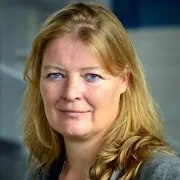Missed out on MIPIM? Three of Arcadis’ sustainable buildings experts share their top 5 take-aways from an action-packed event in Cannes.
Introducing the team:
• Marjolijn Versteegden – Smart Sustainable Buildings, Global Solution Director
• Joanna Plaisant – Strategic Partnership & Sustainability Director
• Swantje Liebe – Solution Lead Smart Sustainable Buildings, Germany
1. Talking about ESG is so 2023 … 2024 is about action
Swantje: Some people are still really interested to speak about ESG and Sustainability, but some were like, ‘oh, we've heard this before'… But it's a conversation that needs to be had.
“People need to continue to listen, and talk about ESG, as it’s a topic that will follow us for the next 50-60 years.
“Our challenge is to find different stories to tell them, where it’s not just about reporting, fulfilling obligations and regulations, but there are many other advantages to include ESG in your daily work, your buildings and so on, but it felt like a hard sell at MIPIM this year.”
Joanna: “Investors and asset managers are seeking practical discussions on ESG criteria, moving beyond mere terminology to actionable strategies.
“Their primary focus is on the effective implementation of ESG measures, aiming for tangible improvements in their properties. They express a clear demand for straightforward guidance on enhancing their buildings, emphasizing compliance with regulations, cost reduction, and energy efficiency.
“It was clear this year at MIPIM that the conversation has shifted from theoretical understanding to a keen interest in pragmatic solutions and expert assistance in delivering these improvements.”
2. Financial products to support green initiatives are lagging behind
Marjolijn: “There’s a huge amount of talk about ‘Green Engagement’, ‘Green Financing’ and ‘Green Funds’, many of the questions at MIPIM were asking us about the financial products available to support net zero and retrofit projects. Especially existing cases and experience, the proof points are needed.”
Joanna: “The aspiration for sustainability is universally acknowledged, yet there is a noticeable reluctance to incur the associated costs.
“Despite widespread awareness, there's a prevailing sentiment that banks and financial institutions have yet to fully develop and offer financial products that adequately support the retrofitting, repositioning, energy transition, and achievement of carbon neutrality within the real estate sector.
“The funders feel like it’s their burden, their responsibility. ‘Why is green capex 10x or 100x more than Technical Due Diligence?’ The market expects some products designed to help them finance it, and without access to those products, we run the risk of killing the momentum we have.”
3. Be ‘Smart’ to be Sustainable
Marjolijn: “We saw a lot of discussion around ‘innovation’, and there were questions around the best fit or the right digital platforms and technologies.
“The reality is there’s a lot of choice out there and none of them will work unless you’re clear about what you want to achieve with the data you receive based on your company's ESG ambition.”
Swantje: “This is one example where the ‘G’ in ESG, namely ‘Governance’, is getting some airtime… everyone recognizes that net zero or sustainability is not possible without a proper data baseline. So, everyone is collecting data now, but it’s about how people use the data to develop insights – you need a degree of expertise to understand and interpret this. There is some dangerous ‘half-knowledge', where people know the buzzwords or the tools, but if you dig a little bit deeper the answers get very vague.
“It is very hard for investors and building owners to see through the jungle of sustainability-related buzzwords and ESG service providers. And that is where specialist companies – like Arcadis but not limited just to us – can help, offering decisions on smart targets, strategies, engineering or technology solutions or interventions, and that all-important measurement – ensuring there is a return on investment.”
4. Planning for the worst-case scenario – climate adaptation
Joanna: “At MIPIM there was definitely a focus on carbon reduction, and I’m not saying we’re ‘doomed’, but we also need to look at climate adaptation.
“One of the topics I didn’t hear much about – apart from at Marjolijn’s panel session with UN-Habitat – was water scarcity. There are countries around the world already with low levels of underground water. With climate change, what impact will this have, and will it ultimately change where people choose to live? In future, will some countries be selected for investment based on their limited exposure to climate change, or their resilience to deal with it?
“Whilst we’re rightly focused on limiting climate change, we also need to plan for its potential impact.
“I know it’s something we’re looking at in Arcadis, and we have good knowledge and proven solutions, but I think we need to bring more voices into the conversation to raise the volume on this topic.”
5. It’s time to partner up
Marjolijn: “Everybody I spoke to seems to want to work together, whether it’s lawyers, engineers, architects, contractors, cities, investment funds, tech companies.
“People want to come closer together so that they can be aligned on innovation, on circular economy initiatives and in moving in the right direction. We need to innovate, but we should not diverge too far and splinter or dilute our collective efforts. Ultimately, to deliver impact, we need to move together and have a level of agreement on baselines and standards. The World Business Council for Sustainable Development [WBCSD] has taken the initiative, and we support them for that.
“Partnerships are about finding value, about bringing in expertise that you don’t have, being open to sharing some of your ‘secrets’ for the greater good. For instance, we have partnered with Honeywell, and for us, and Honeywell, it’s about making it easier for clients to get approval for investments and to deliver the projects more simply.
“Companies need to be honest about what we can and can’t do, find the right partners who fill the gaps, and be open to working together for the benefit of our clients and our planet.
“It was refreshing at MIPIM to be part of conversations with other companies that share a similar vision. Not one company has all of the answers, and to make bigger impact, we need to work together.”
If you would like to learn more about the impact Arcadis can deliver, you can view some of our flagship projects here.







